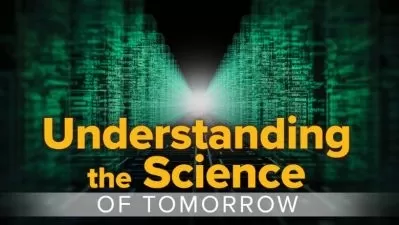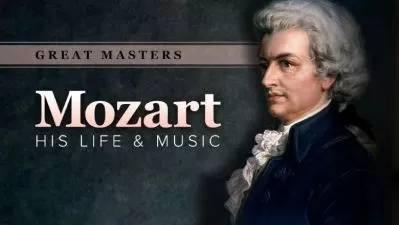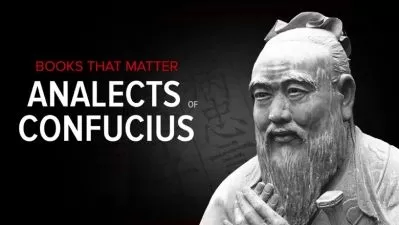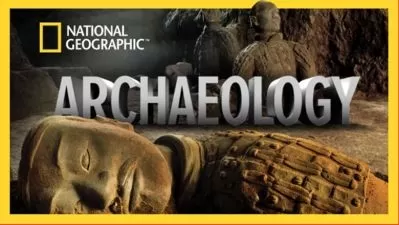Books That Matter: The City of God
Charles Mathewes
12:46:50
Description
Augustine of Hippo’s magnum opus The City of God is one of the greatest works of the Western intellectual tradition—so powerful, in fact, that one could argue all of Christian theology has been a series of footnotes to Augustine. Written during the transition from antiquity to the rise of Christianity, it is one of the key texts in defining our ethical framework into the 21st century. Yet even serious readers can be intimidated by a book that spans over 1,000 pages.
Augustine started writing The City of God in 411 A.D. as a defense of Christianity after the sack of Rome—indeed, as a critique of the depravity of Rome itself. Yet by the time he completed the book more than 15 years later, he’d taken the offense, arguing in favor of a radical new relationship between humanity and the world. Modern readers, warily eyeing the book’s imposing scale, may wonder: What made this book so influential over the years? What mysteries lie between its pages? What relevance does the 1,600-year-old text have for our world today? How should contemporary readers approach this monumental text?
Take the plunge with this profound survey of one of the world’s truly great books. Books That Matter: The City of God ushers you on a historical and theological journey through the final years of the ancient world. Taught by Professor Charles Mathewes of the University of Virginia, these 24 in-depth lectures guide you chapter by chapter through Augustine’s masterpiece, introducing you not only to the book’s key arguments but also to the historical context necessary to comprehend The City of God‘s true power.
Augustine began the book as an apologetic when Romans began to blame Christians for the sack of their city. But his audience was hardly a homogenous group of skeptics that he could win over by linear argument. Rather, he faced multiple audiences with myriad motivations. Trained as a rhetorician, he employed a different kind of argument, filled with digressions and stories and historical accounts, to make his case for a new Christian worldview.
The result was a wide-ranging philosophical treatise whose ultimate strategy was conversion—to transform Rome from a brutally immoral society to a city where Christ’s love provided the guiding star. As you’ll discover in Books That Matter: The City of God, Augustine’s argument was so powerful that his book became one of the most influential texts on politics, humanity, divinity, and the long and ultimate destiny of the world.
Discover a New Perspective on Augustine
You likely know Augustine as the author of The Confessions and one of the fathers of the Christian Church. Based on the common historical perception, you might imagine he was a dour figure with a somewhat grim outlook on human nature and the world in general. Thanks to his early flirtations with Manichaeism and Platonism, misconceptions about him abound.
But as Professor Mathewes ably shows, Augustine was a surprisingly modern man with a clear-eyed, sophisticated outlook on the world. He truly comes alive on the page, and in this course, you will travel with him as he wrestles with some of the thorniest philosophical challenges of any time, including:
- The problem of evil
- Faith versus reason
- Fate versus free will
- The doctrine of original sin
- The nature of Heaven and Hell
- The nature of God
Although there are no easy answers to any of these issues, Augustine’s approach is ultimately comforting. Rather than pat rhetorical answers, he provides a perspective and a worldview that allows readers to live “happy in hope,” which he argues is the only true happiness available in a fallen world.
As you move through these lectures, one of the most striking aspects of the book is the way Augustine’s world and worldview feel so familiar to us today. He wrote The City of God during a time of religious pluralism, when the Roman Empire (which had perhaps seen better days) struggled with the nature of its conquests and the relationship between the state and its citizens.
Gain New Insights into the Ancient World
Augustine’s thought straddles the line between the Old World of pagan antiquity and the dawn of the Christian era, and The City of God offers astounding insights into both worlds. As an apologetic for Christianity, the first half of the text offers a scathing critique of Roman society, its immorality and decadence, arguing that statesmen could not be distinguished from gangsters, and that the grandeur of Rome was a false idol.
Professor Mathewes guides you through the historical context of the earthly city, drawing a picture of Augustine’s contemporary audience as well as a world in transition. Among other fascinating topics, you will learn about:
- The sack of Rome by the Visigoths
- Roman philosophies and religion
- The politics and history of the empire
- Roman spectacles and ideology
- Antiquity through a scriptural survey
Augustine offered a devastating “immanent critique” of Rome—that is, a critique using their own rhetoric and their own historians against them. He drew from so many historical sources that The City of God became a historical source in its own right, offering a first-hand account of the end of the imperium and the dawn of Christendom.
Augustine’s ultimate goal with this book is conversion, so in the second half of his masterpiece, he shifts from a critique of the Old World to an argument for what the new world should be, showing a fallen mankind how to appreciate and embrace a new vision of life. Using scripture as his guide, he constructs a history of the world from Creation and the Fall to the Resurrection and the Last Judgment.
Augustine and his readers—then, as now—were living in a kind of epilogue, after the Resurrection of Christ but before the Last Judgment. Therefore, in his extended consideration of the nature of humanity, the world, and the cosmos, he tackles issues ranging from politics and war to the human quest for happiness, showing how to live a just and rewarding life—how to live in the earthly city with an eye toward the heavenly one.
An Accessible Yet Highly Intellectual Ride
A close reading of The City of God rewards you with deep insights into what it means to be human. With Professor Mathewes as your guide, this course is your chance to unpack the big questions about our life on Earth and what might come after. You’ll see how, despite its scope, The City of God is not only accessible, but also just as relevant today as it was in the 5th century.
Whether you come to this text as a Christian, a philosopher, a historian, a literature lover, or someone who simply wants fresh insight into our world today, Augustine will revolutionize the way you think about politics, religion, history, and our relationship to the divine. Books That Matter: The City of God is a magnificent introduction to one of the world’s truly great books.
More details
User Reviews
Rating
Charles Mathewes
Instructor's CoursesDr. Charles Mathewes is Carolyn M. Barbour Professor of Religious Studies at the University of Virginia, where he teaches religious ethics, theology, and philosophy of religion. He earned his B.A. in Theology from Georgetown University, and his M.A. and Ph.D. in Religion from the University of Chicago. From 2006 to 2010, Professor Mathewes served as editor of the Journal of the American Academy of Religion, the flagship journal in the field of religious studies. He was Chair of the Committee on the Future of Christian Ethics for the Society of Christian Ethics, the inaugural Director of the Virginia Center for the Study of Religion, and he currently serves on the House of Bishops Theology Committee of the Episcopal Church. He is the author of Evil and the Augustinian Tradition, A Theology of Public Life, Understanding Religious Ethics, and The Republic of Grace: Augustinian Thoughts for Dark Times. He is also associate editor of the 3rd edition of the Westminster Dictionary of Christian Ethics and Senior Editor of Religious Ethics: The Major Works/em>. He has been a Mead Honored Faculty-one of UVA's highest teaching awards-and also a Mead Endowment Teaching Award. Every year since 1999, Professor Mathewes's classes have been named as exemplary classes for prospective students to attend during UVA's "Days on the Lawn," a decision period for applicants accepted to the university.

The Great Courses
View courses The Great Courses- language english
- Training sessions 24
- duration 12:46:50
- English subtitles has
- Release Date 2023/05/09















